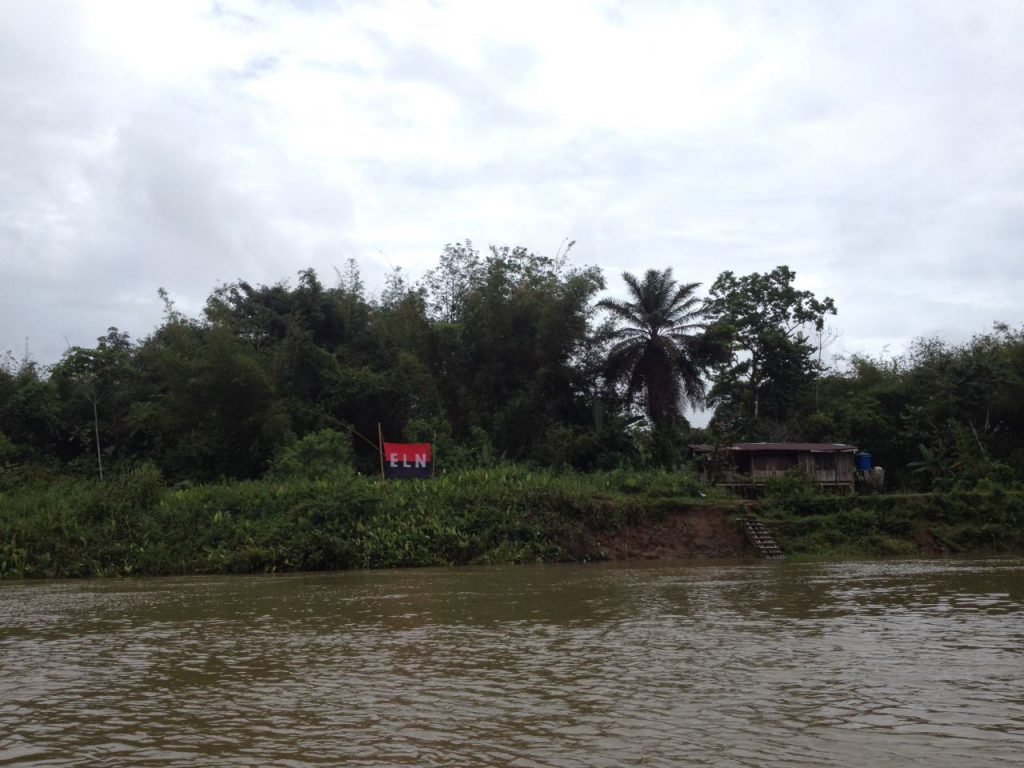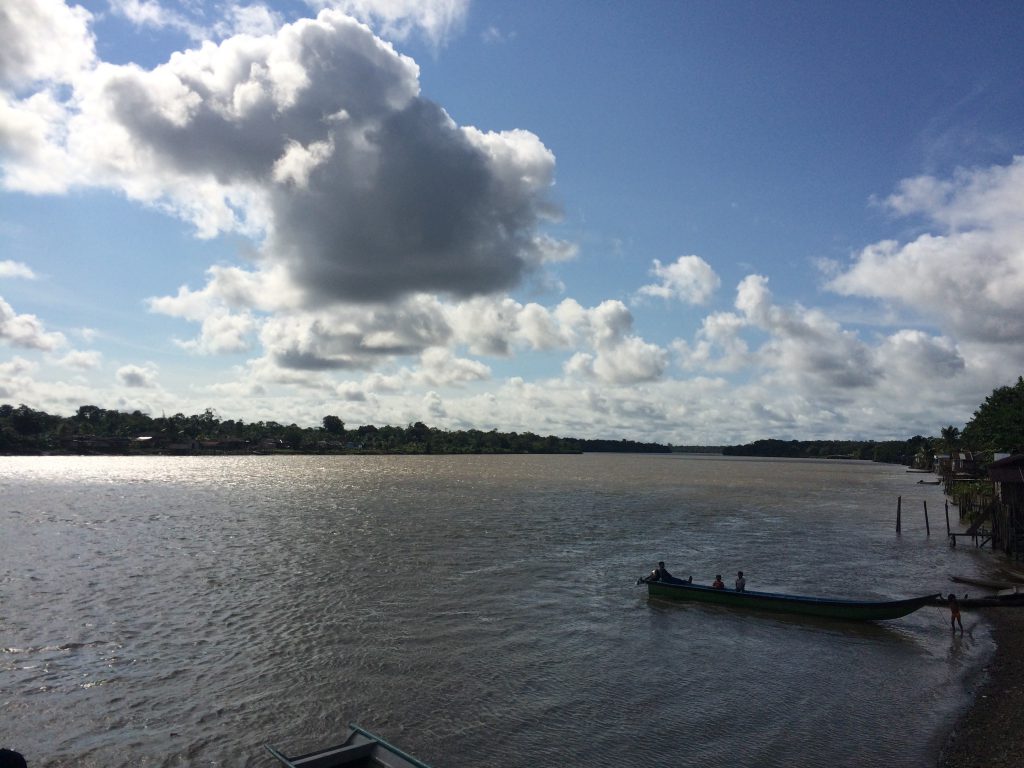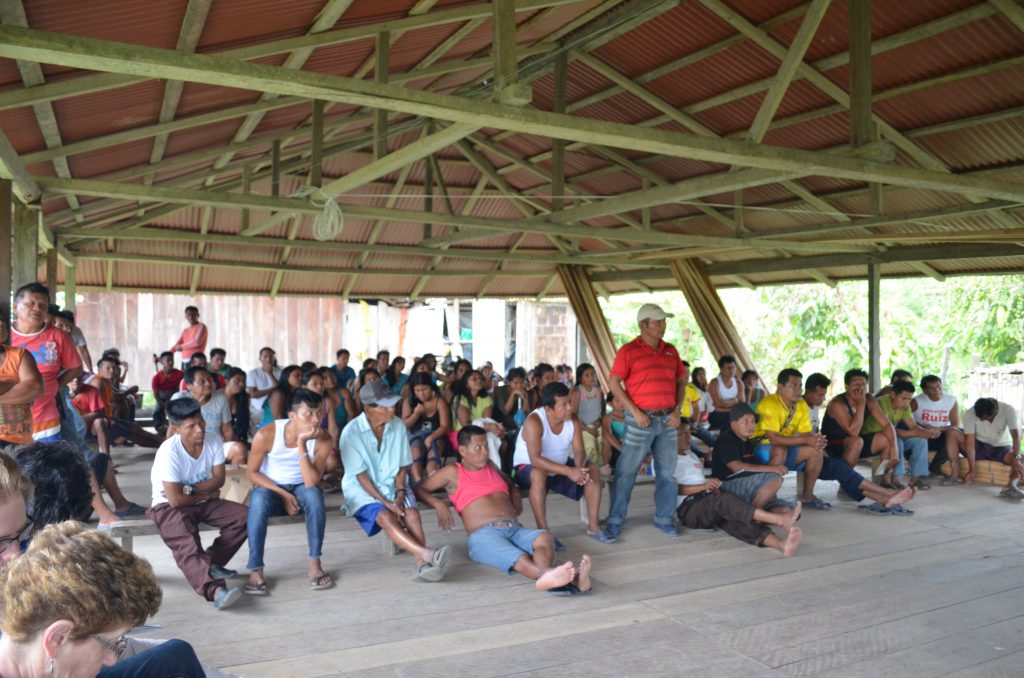Over two weeks after the plebiscite vote, Colombia is still trying to recover from the surprising “No” vote that left the country in political limbo. All parties have expressed their desire to move forward to find a resolution to the current impasse and as explained by Adam Isacson, WOLA Senior Associate for Defense Oversight, Colombia seems to be on track for the best-case scenario solution.
Victims and those most affected by the internal conflict have voiced their support for the Peace Accords by participating in massive demonstrations, providing President Juan Manuel Santos with much-needed political backing after the unexpected plebiscite result. Although opponents of the accords have already provided proposals to amend the agreements, the blame for failure to swiftly resolve the current impasse could largely land on the opposition. Blocking compromise and further delaying the process puts Colombia at risk of losing its best opportunity to end its protracted conflict. The more time passes without a resolution, the greater the danger that armed groups could return to illegal activities to sustain their existence, immediately impacting people living in regions that continue to face the imminent threat of armed actors.
One of those regions is the lower San Juan and the Calima rivers, in Valle del Cauca and Chocó. A year ago, WOLA visited the port city of Buenaventura, Colombia’s main city for trade and commerce. On that occasion, WOLA witnessed the terrible living conditions of more than 300 Wounnaan indigenous tribe members displaced by paramilitary actors. Families were living in a sports complex without necessary aid, and a number of community leaders were facing death threats.
In September, WOLA returned to Buenaventura to visit the same communities. Now back in their territories, they face displacement once again. Worse, under the current situation in Colombia, they also face the risk of having their proposals and objectives outlined in the Ethnic Chapter of the peace accord removed.
Upon arrival at the Calima and lower San Juan River, it is clear that the Wounnaan live in a constant state of duality: the realities of conflict and the prospect for peace. Communities there understand that the prospect for peace expressed in the process in Havana means that their active participation in the post-conflict scenario need to reflect concrete proposals that encompass the points agreed in the accord. At the same time, they live with the reality of armed actors harassing them on a daily basis.
National Liberation Army (ELN) banners are visible along the Calima river, and Colombian military patrols, though not frequent during our visit, occur. The presence of paramilitary groups in the strategically-located river is overwhelming. Locals informed us that they are under constant threat and abuse by illegal armed groups. Many fear that displacement is imminent.

According to the Inter-Ecclesial Commission on Justice and Peace, the communities of Union San Juan, Puerto Guadulito and Puerto Pizario have faced harassment since August. Some experienced torture at the hands of the paramilitaries. On August 15, an indigenous woman belonging to the indigenous reservation of Puerto Pizario was attacked and tortured. According to Justice and Peace, the woman was beaten for not providing information on an alleged guerilla member in a cellphone picture. Upon further questioning of the incident during our visit, members of the Puerto Pizario reservation told us that the abusers made cuts in her fingers.
On August 17, the same communities detected boats with armed men patrolling their reservation. The next day armed men entered their territory and restricted civilians’ freedom of movement. Faced with armed intimidation, the Wounnaan’s daily activities such as fishing, hunting, and cultivating crops and medicinal plants had ground to a halt. Civilians remain confined in their own territories. We witnessed, that many of the products they consume now come from Buenaventura rather the communities themselves.
The situation has reached a point that it is not too different from what WOLA witnessed in 2015. Without access to food, traditional medicine, and security, their displacement is imminent. Already, 32 women, 59 children and 6 young people from the Wounaan communities of Puerto Guadualito and Union San Juan of the San Juan River in Chocó were displaced to the Puerto Pizario reservation in Valle del Cauca.
Those displaced from Puerto Guadualito observed the presence of armed men in places where they grew their crops the day before they left. Some of these men were dressed in in civilian clothing while others wore camouflage and carried weapons and radios.

The Accords’ Ethnic Chapter, Peace and the International Community
As noted by Gimena Sanchez, WOLA’s Senior Associate for the Andes, the Ethnic Chapter “includes principles applicable to the entire accord that guarantee that Afro-Colombians’ and indigenous peoples’ rights are safeguarded. It establishes a High Level Ethnic Commission to help guide implementation in a manner that guarantees their participation in the process.”
Accepted into the peace accords at the very last minute, the Ethnic Chapter reflects the arduous work of a coalition of organizations dubbed the “Ethnic Commission,” which is made up of the Afro-Colombian Peace Council (CONPA), the National Indigenous Organization of Colombia (ONIC), and the High Government of Indigenous Authorities. Created in 2015, the Ethnic Commission became a unified voice for ethnic minorities in Colombia to the negotiating parties in Havana. A years’ worth of advocacy, meetings and consultations to gather proposals led to inclusion in the peace accords.
The Ethnic Chapter represents the concerns of organized communities most affected by the violence of the conflict and seeks to ensure that the final agreement complies with international and Colombian law and anti-racism agreements.
The Ethnic Chapter creates an immediate sense of hope that communities needed. During our visit, communities expressed their hope that the peace accord could begin a process of recognizing the responsible actors of the conflict and also begin a process of healing. Above all, communities felt that with the existence of an Ethnic Chapter, the accords correctly addressed their right to access to truth, justice, reparations and non-repetition.

Considering the immediate dangers these communities face, they expressed the hope that this accords could begin to address the dismantling of paramilitary groups. This is in fact addressed in the peace accords with the creation of a special unit within the Attorney General’s Office.
Unfortunately, the rhetoric of the “No” supporters has elevated an explicit desire to remove the accomplishment of ethnic minorities from the peace accords. In the official proposals presented by former President Alvaro Uribe in early October, he states that: “Consultations with communities may be limited from time to time by government decrees in order to not to hinder balanced development of the nation”.
With one sentence, Mr. Uribe proposes to eliminate constitutionally-guaranteed rights of ethnic minorities in Colombia, while cleverly removing the power of the Ethnic Chapter. His proposal would allow for the government to unilaterally use decrees to override the decision making of the Ethnic Commission during the implementation of a future accord. Coupled with Mr. Uribe’s past racist remarks, such as when he said “Colombia is not an African tribe but a country of institutions” when asked about transitional justice issues, it is clear that the “No” camp seeks to jeopardize the future of ethnic minorities.
Though some of Uribe’s’ other proposals seem realistic and less ideological, and others will be immediately rejected by the FARC, it is certain that the accords must continue to receive international support. Peace along the San Juan and Calima Rivers will largely depend in the ability of the communities to implement the accords based on the guiding principles of the Ethnic Chapter.
The United States and its special envoy have played an important role in opening a space for the Ethnic Commission. Members of the U.S. Congress have publicly supported of ethnic minorities during the negotiation process, and organizations such as the Coalition of Black Trade Unionists have publicly requested the White House that “the Ethnic Chapter remains in any renegotiated peace accord with FARC.”
Although it will be up to the leadership of the Ethnic Commission to continue maneuvering its way through the din of loud voices seeking to be heard in the current impasse, support from the international community will be vital in guaranteeing a successful resolution to a peace process that demands strong momentum. It is the ethnic minorities in the historically excluded areas that will truly build peace in Colombia, and supporting their efforts will determine the stability and wellbeing of their communities.